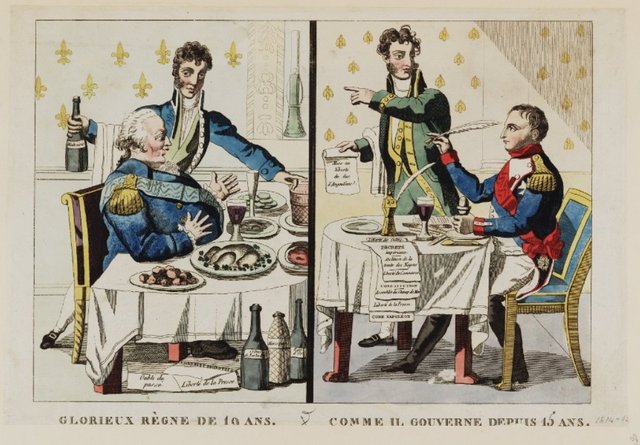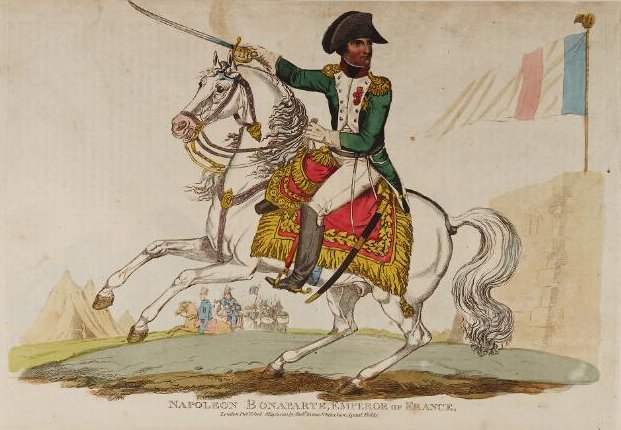I was chatting to my son last Sunday. As an officer in the British Army, he does not have a lot of time for Napoleon as a great general. “He only fought three wars that mattered: Russia, 1814 and the Waterloo campaign – and he lost all three.” That’s grossly unfair. For a start, it misses out Egypt, which he lost as well.
My son’s is a pretty chauvinist view. (Ironically, the word ‘chauvinist’ refers to a loyal – and possibly apocryphal – Napoleonic soldier.) Napoleon was, most people will agree, a pretty good general, but he was comprehensively beaten in 1814 before coming back to his final destruction at Waterloo. While he was in exile on Elba, Louis was back on the throne in Paris but there was a lot of dissatisfaction with his rule.

There were many Bonapartist plots, some of them aimed at the Duke of Wellington who was the British ambassador to the French court and particularly unpopular with Napoleon’s followers. At least one attempt was made to shoot him, although the incident seems to have been covered up, presumably because everyone wanted to pretend that Parisians were happy with the new order.
The attempted assassination is the starting point for Burke at Waterloo. Burke infiltrates the Bonapartist gang and foils the assassination attempt as well as another (fictitious) attempt to bomb the royal residence at the Tuileries. The assassin flees Paris with Burke in pursuit, but the trail goes cold in Brussels.
With Napoleon’s escape from Elba, Burke cannot return to France. Believing that the Bonapartist agent is still in Brussels he decides to stay there, but as the Allies mobilise against Bonaparte he joins a Dutch Belgian cavalry regiment.

I had a particular reason for wanting Burke to join a Belgian regiment. My wife’s family are Belgians and I get tired of reading how the Belgians ran away at Waterloo when at least some of them behaved with notable bravery. Burke’s adventures in the battle, which are closely based on the historical reality, go some way to giving the lie to the tale of Belgian cowardice.
Burke’s military duties do not prevent him from pursuing both Bonapartist spies and his own amorous adventures. The various strands of the story come together at the Duchess of Richmond’s famous ball with the dénouement at the battle of Waterloo itself where Burke has to face not only the enemy soldiers but a deadly assassin who is still determined on murdering the Duke of Wellington.
Burke at Waterloo features romance, a thrilling spy story and a soldier’s eye view of two key battles of the Waterloo campaign. Like all the Burke books, it’s real history, but not how you learned it at school.
Burke at Waterloo is published tomorrow on Kindle and can be pre-ordered now. A paperback edition will be available in a few days.

Good luck with your book, Tom. It will be going on my TBR pile!
Thank you. I hope you enjoy it.